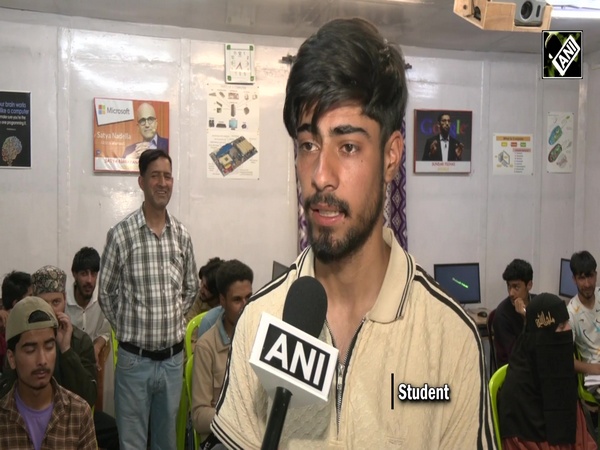"Kappan has close links with extremist organisation PFI", UP govt tells SC while opposing bail plea
Sep 06, 2022

Uttar Pradesh [India], September 6 : The Uttar Pradesh government has opposed the bail plea filed by Kerala journalist Siddique Kappan in the Supreme Court.
Kappan was booked by the Uttar Pradesh government under the Unlawful Activities Prevention Act (UAPA), saying he has close links with extremist organisation Popular Front of India (PFI).
Kappan has "deep links" with terror funding/ planning organisations like PFI and its student wing, Campus Front of India (CFI). These organizations have allegedly been found to have connections with Al Qaeda-linked organisations like IHH in Turkey, the Uttar Pradesh government has said in its affidavit.
It stated, "The investigation of the case has revealed that the Petitioner has a deep nexus with the extremist PFI and its chapters including CFI, and its top leadership, in particular P Koya, ex-SIMI member, PFI Executive member, and Editor in Chief of Thejas. P Koya, along with EM Abdul Rahman, has connections and interactions with Al Qaeda linked organization IHH in Turkey."
Kappan approached the top court against the Lucknow bench of the Allahabad High Court on August 2 that had rejected his bail application saying "the use of tainted money cannot be ruled out".
Earlier, the apex court sought the Uttar Pradesh government's response to Kappan's bail plea.
Kappan was booked under UAPA and other charges in the alleged Hathras conspiracy case.
The hearing in the bail plea will take place on September 9.
Filing its response, the government further stated that Kappan was actually part of the PFI/CFI delegation to meet the family of the Hathras victim and foment discord and spread terror.
"Investigation has revealed that the said delegation was sent to Hathras on the directions of co-accused Rauf Sharif (National General Secretary, CFI, prime fundraiser and financial transaction handler for PFI/CFI), who had also provided finances for the trip," it added.
"The investigation has revealed that the Petitioner is part of the larger conspiracy with the co-accused (including the financial launderer of CFI, Rauf Sharif) to foment religious discord and spread terror in the country, especially in the wake of anti-CAA protests and violence, the Babri Masjid decision of this Court and the Hathras incident," the affidavit further stated.
The appeal filed by Kappan against the High Court order said that the "present petition raises seminal questions pertaining to the right to liberty, as well as the freedom of expression and speech vested in independent media under the aegis of the Constitution."
The plea before the apex court has said that the High Court has "grossly overlooked the well-established principles regarding the grant of bail, and without affording any cogent reasons, has mechanically dismissed Kappan's bail application".
The High Court has not taken into account the fact that Kappan is an established journalist with over 12 years of experience, and that he is a member of both the Delhi press club and the Kerala Union of Working Journalists, said the appeal, adding that both outfits have issued certificates authenticating Kappan's credentials as a journalist.
The Uttar Pradesh Police arrested Kappan and three others on October 5, 2020, from the Mant area of Mathura. Police had claimed that the accused were travelling to Hathras to disturb peace and harmony in the area.
The police had said it has arrested four people having links with the PFI in Mathura and identified the arrested persons as Siddique from Malappuram, Atiq-ur Rehman from Muzaffarnagar, Masood Ahmed from Bahraich, and Alam from Rampur.
However, Kappan, a reporter for Malayalam news portal Azhimukham and secretary of the Delhi unit of Kerala Union of Working Journalists (KUWJ), has maintained that he was going there to report on the gang-rape and murder of a 19-year-old Dalit girl.
April this year, the UP Police's Special Task Force (STF) charge-sheeted him and seven others under the stringent UAPA and sections of the Information Technology Act.



















